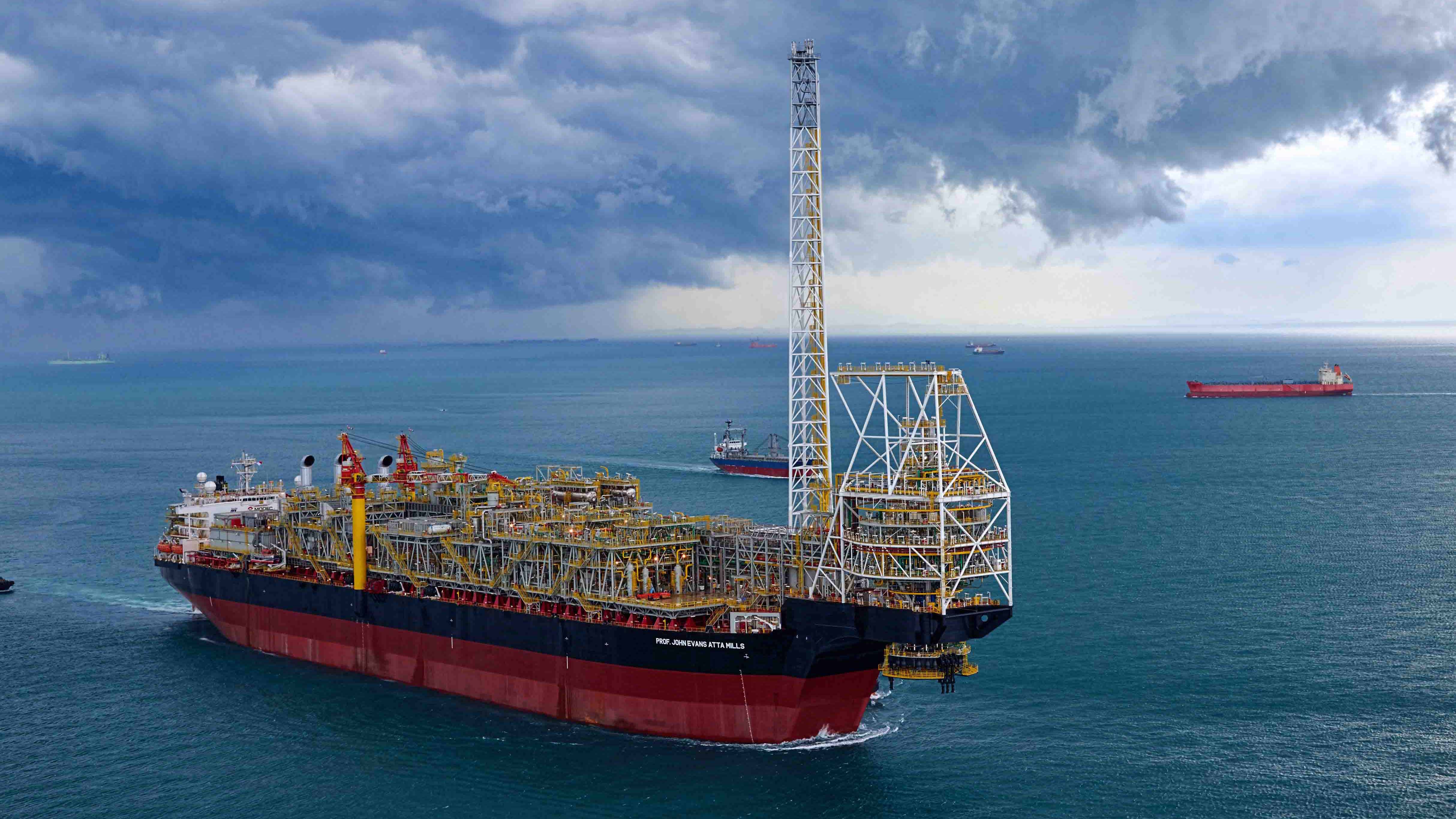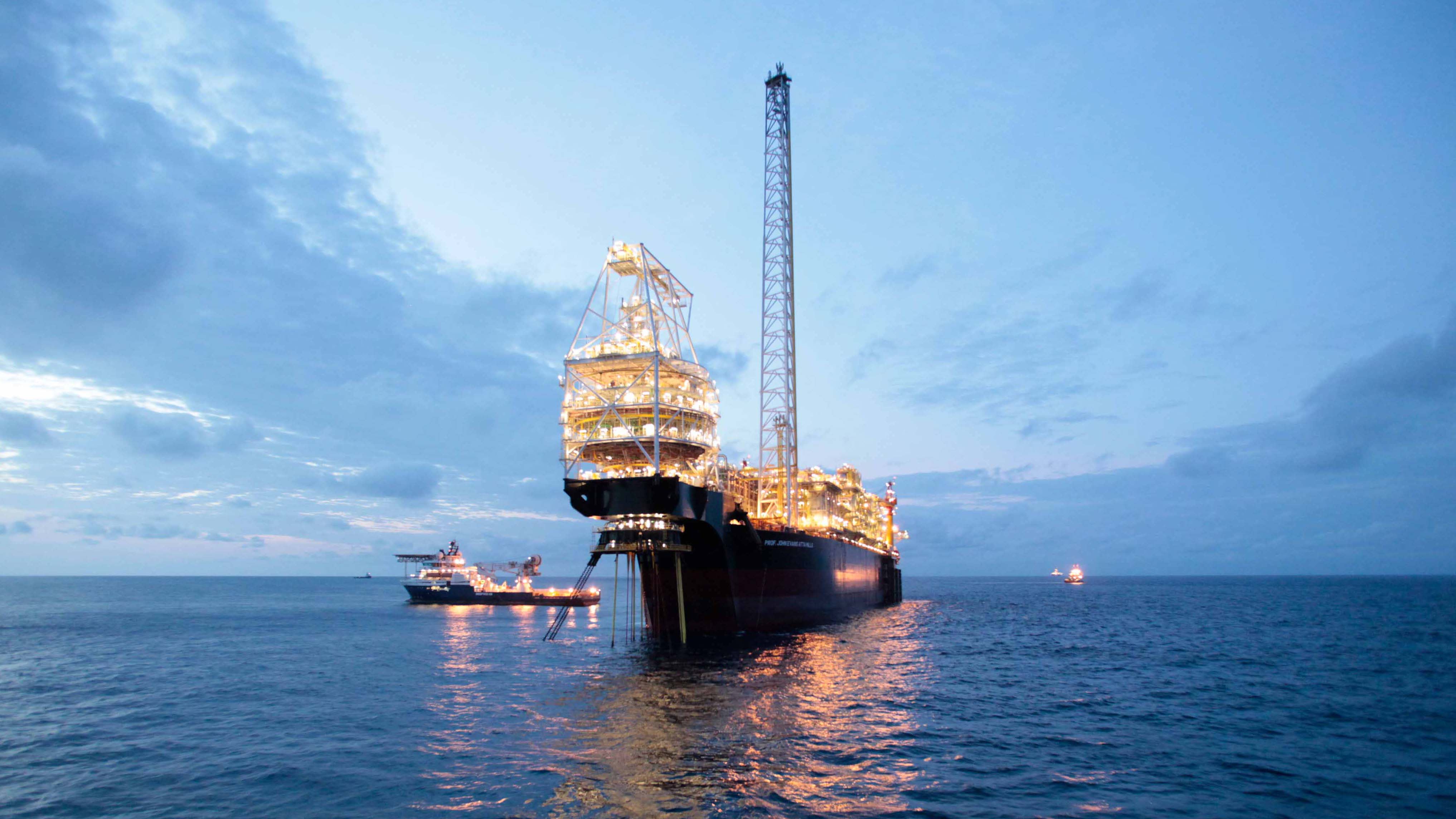Offshore Business

(Photo couresy: MODEC, Inc.)

(Photo couresy: MODEC, Inc.)
MOL, together with MODEC, Mitsui & Co., and Marubeni, has invested in T.E.N. Ghana MV25 B.V. ("MV25") (MOL holds a 20% stake), and is engaged in a long-term charter business of a floating production, storage, and offloading system (the "FPSO") in the Tweneboa, Enyenra, Ntomme ("T.E.N.") oil fields offshore Ghana.
MV25 offers leasing of the FPSO for Tullow Ghana Limited, an operator of the T.E.N. fields in the Deepwater Tano region. The FSPO, which was named "FPSO Prof. John Evans Atta Mills" derived from the name of the former president of Ghana, is moored at sea in 1,500m water depth, and has been producing crude oil and natural gas since 2016.

(Photo couresy: MODEC, Inc.)
MOL takes a proactive stance in the offshore business, where we anticipate further growth, by using the experience accumulated in LNG carrier and tanker operation. Floating production, storage and offloading (FPSO) units and floating storage and regasification units (FSRUs), which use a vessel moored in a specific place rather than transporting resources from one place to another, are typical of MOL's offshore business.
The company entered the FPSO business in 2010, and now participates in nine projects off the coast of Brazil, one off Ghana, and one off Mexico.
Furthermore, in 2014 we entered the shuttle tanker business, which involves transporting crude oil from FPSOs to onshore oil refineries, in 2016, we made our first foray into the subsea support business, which includes installation, maintenance, repair, and decommissioning of subsea equipment, in 2017, we entered the renewable energy business through involvement in a company that operates turbine installation vessels, and in 2020, we signed a charter contract for service operation vessels (SOVs) at offshore wind farms.
MOL is also the first Asian shipping company to take delivery of an FSRU, which is currently in operation in Turkey, and is slated to enter service under a long-term contract in Hong Kong starting in 2021. In Indonesia, plans are underway for an FSRU that will be integrated with a large-scale LNG-fired thermal plant, and another project is slated to start in India in 2021. Most recently, MOL began working toward commercialization of Germany's first offshore LNG receiving terminal with Uniper S.E., a major gas and electric power company in Europe.
In 2019, based on our accumulated experience and track record in LNG carrier and FSRU operation, MOL and Karpowership of Turkey jointly started an LNG powership business combining an FSRU and powership. Following the first powership project in Mozambique, East Africa, we have taken a proactive approach to developing our offshore business.
In 2021, MOL entered the business of transporting liquefied carbon dioxide (CO2) by sea. LCO2 carriers will play an important role in the CCUS (Carbon dioxide Capture Utilization and Storage) value chain, which is attracting attention as a means of realizing a low-carbon and decarbonized society, by efficiently connecting captured and LCO2 to storage areas.